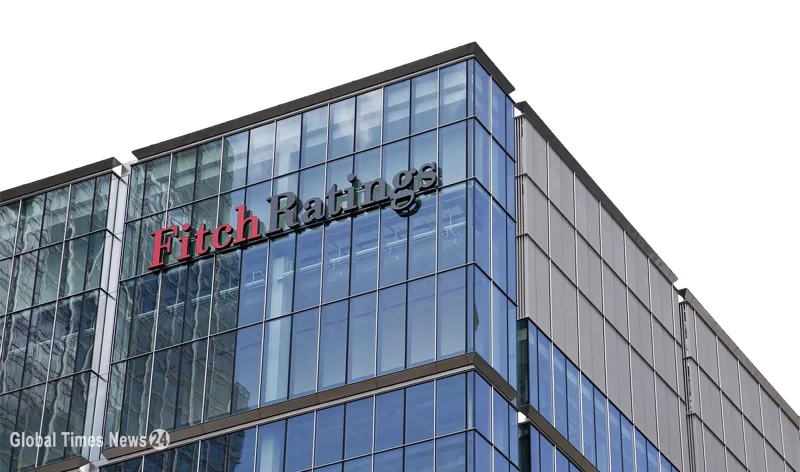Democratic Senators introduced a bill on Thursday that would enable the president to sanction foreign cryptocurrency firms doing business with sanctioned Russian entities and prevent them from transacting with U.S. customers.
The Digital Asset Sanctions Compliance Act is led by Senator Elizabeth Warren and co-sponsored by 10 other Democrats, including Senators Mark Warner and Jon Tester.
While the bill is unlikely to become law anytime soon, it could ramp up pressure on cryptocurrency exchanges, which have been on the defensive amid concerns from some lawmakers like Warren that digital assets are being used to circumvent a slew of Western sanctions imposed on Russia following its invasion of Ukraine.
Russian President Vladimir Putin "and his cronies can move, store and hide their wealth using cryptocurrencies, potentially allowing them to evade the historic economic sanctions the US and its partners across the world have levied in response to Russia's war against Ukraine,” Ms Warren said in a statement.
The administration officials have said they do not believe Russia could use cryptocurrencies to completely evade sanctions, citing the lack of liquidity in crypto markets to facilitate high-volume transactions. Nevertheless, the Treasury Department has emphasized that digital asset firms are required to comply with the sanctions.
Warren's bill would also allow the Treasury secretary to block digital asset platforms operating in the United States from transacting with any Russian crypto users, a step that major crypto exchanges like Coinbase and Kraken have said they would not take without a legal requirement.
The bill would also require the Treasury to publicly identify foreign crypto trading platforms deemed to be at high risk for sanctions evasion and money laundering, and would require US taxpayers to report any offshore crypto transactions exceeding $10,000.
The channel is already off air in the UK due to EU sanctions which have affected the Europe-based satellite operator that distributes the channel across the continent.
Ofcom has come under increasing political pressure to look at revoking RT's licence.
The prime minister has said that if he had the power to ban the channel he would as it is "doing a lot of damage to the truth".
Labour leader Sir Keir Starmer has labelled it Russian President Vladimir Putin's "personal propaganda tool", saying it spreads "lies and disinformation".
Ofcom chief executive Dame Melanie Dawes said: "Freedom of expression is something we guard fiercely in this country, and the bar for action on broadcasters is rightly set very high.
"Following an independent regulatory process, we have today found that RT is not fit and proper to hold a licence in the UK.
"As a result we have revoked RT's UK broadcasting licence."
The decision comes amid 29 ongoing investigations by Ofcom into the impartiality of RT's coverage of Russia's invasion of Ukraine.
Ofcom said: "We consider the volume and potentially serious nature of the issues raised within such a short period to be of great concern - especially given RT's compliance history."
RT was fined £200,000 by Ofcom for breaching impartiality rules after it broke the British broadcasting code on seven occasions over the Salisbury novichok poisoning.
Welcoming Ofcom's decision Culture Secretary Nadine Dorries wrote on Twitter: "The outlet's lies and propaganda, where victims are cast as the aggressors and the brutality of Russia's actions are concealed, have absolutely no place on our screens."
While there have been growing calls to suspend RT's licence, concerns have been raised that such action could result in a tit-for-tat media expulsion in Russia.
Anna Belkina, RT's deputy editor in chief, said: "Ofcom has shown the UK public, and the regulatory community internationally, that despite a well-constructed facade of independence, it is nothing more than a tool of government, bending to its media-suppressing will.
"By ignoring RT's completely clean record of four consecutive years and stating purely political reasons tied
directly to the situation in Ukraine and yet completely unassociated to RT's operations, structure, management or editorial output, Ofcom has falsely judged RT to not be 'fit and proper' and in doing so robbed the UK public of access to
information."
News ID : 387
 US and Taiwan announce formal bilateral trade talks
Breaking News / Bussiness
US and Taiwan announce formal bilateral trade talks
Breaking News / Bussiness
 Russia halts participation in Ukraine grain agreement
Bussiness / Breaking News
Russia halts participation in Ukraine grain agreement
Bussiness / Breaking News
 Moscow sanctions challenge euro area growth: Fitch
Bussiness / Breaking News
Moscow sanctions challenge euro area growth: Fitch
Bussiness / Breaking News
 Bitcoin Achieves All-Time High at $71,500
Bussiness / Breaking News
Bitcoin Achieves All-Time High at $71,500
Bussiness / Breaking News
 Most satisfying Jobs in 2023!
Bussiness / Breaking News
Most satisfying Jobs in 2023!
Bussiness / Breaking News